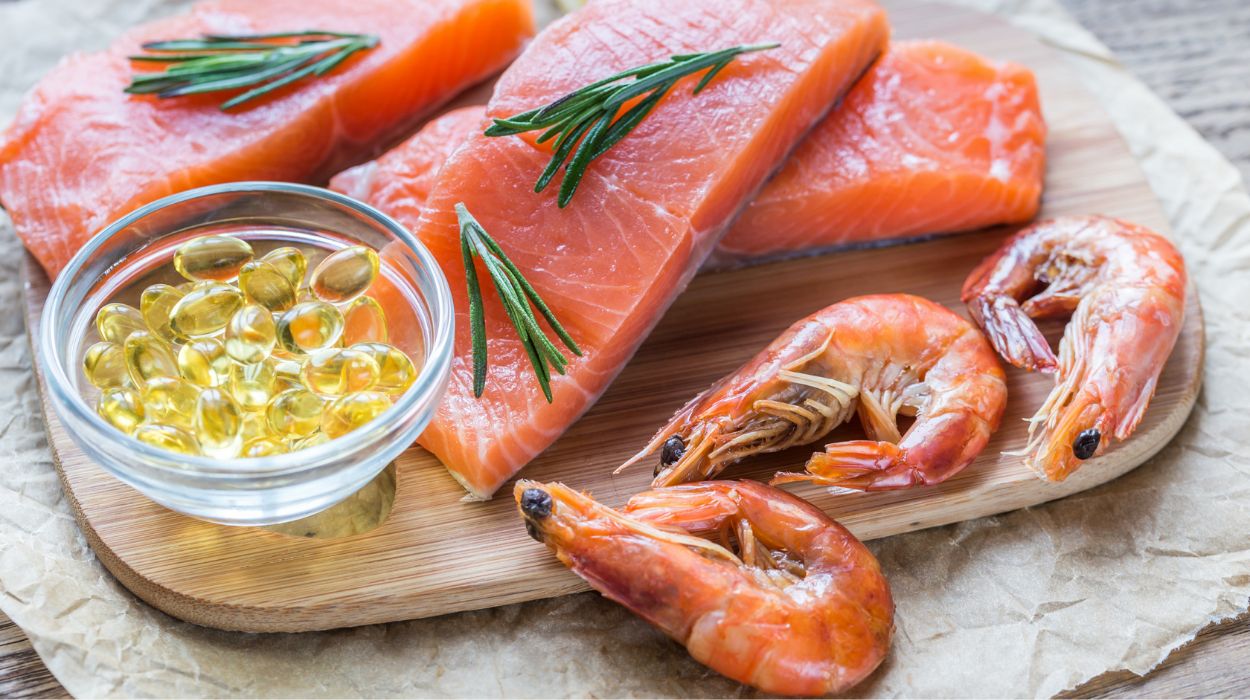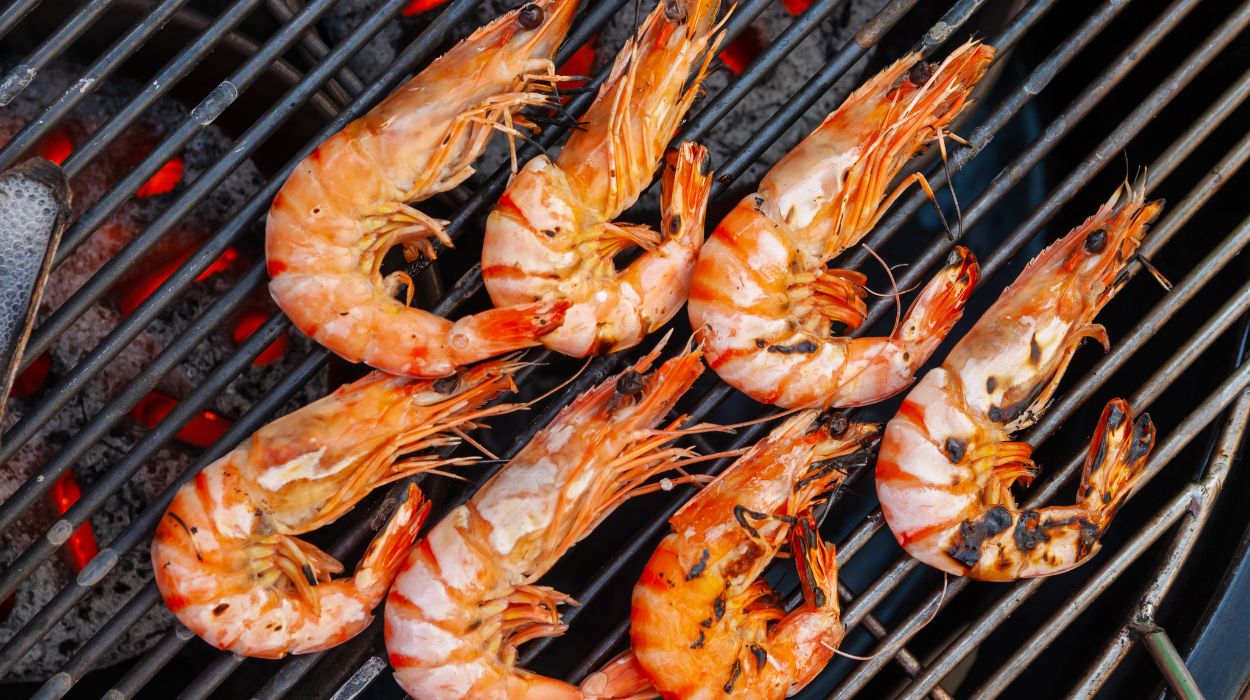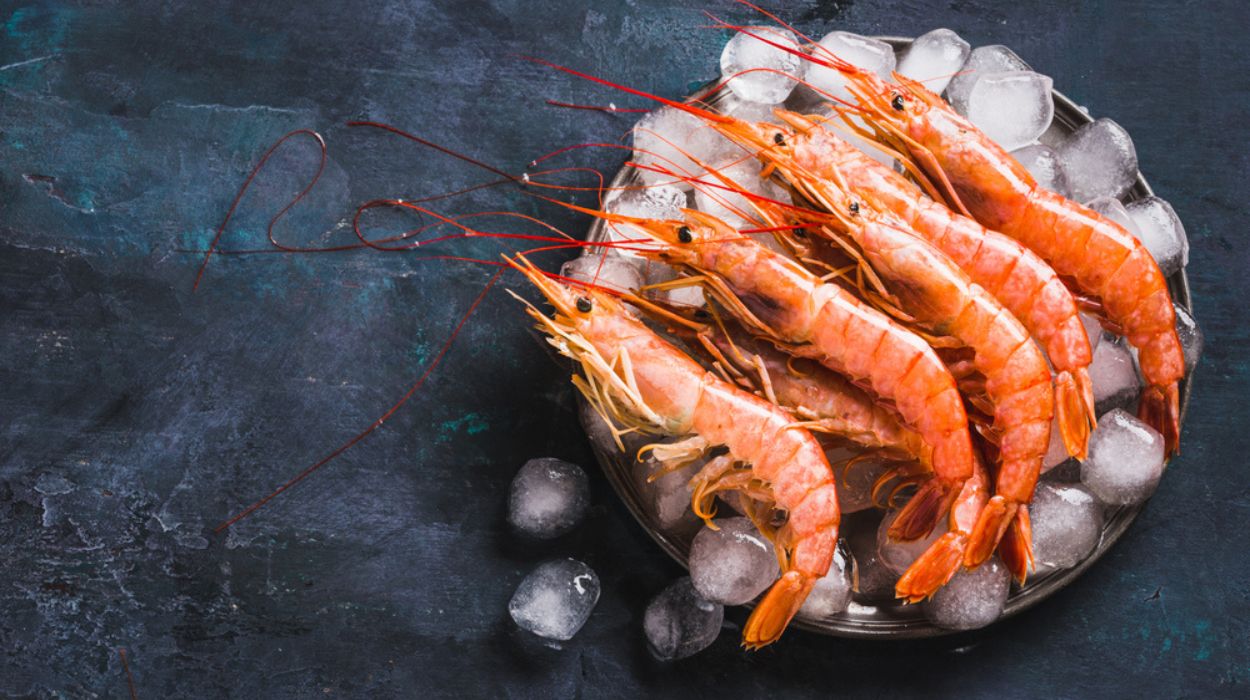As we strive to lose weight, what we eat becomes more important now than ever. It is reasonable to wonder how much calorie deficit to lose weight and how to make improvements to one’s lifestyle to reach these goals.
Shrimp is a popular seafood known for its delicious taste and variety in texture from different cooking methods. But is shrimp good for weight loss? It might be an excellent choice due to its impressive nutritional profile and unique properties supporting weight management.
This article explores the potential benefits of shrimp for weight loss. We will delve into its nutritional composition, role as a low-calorie source, and how to incorporate it into a balanced weight loss diet.
Is Shrimp Good For Losing Weight?
Shrimp can be a great addition to a weight loss diet for a few reasons. They are low in calories and high in protein, which can help you feel fuller for longer periods, potentially reducing overall calorie intake.
Additionally, shrimp is a good source of various nutrients like vitamin D, vitamin B12, and iodine. However, keep in mind that how you prepare shrimp matters too. Avoid heavy frying or high-calorie sauces. Instead, opt for grilling, boiling, or baking for a healthier meal.
Is Shrimp Good For Weight Loss?

Are you on a weight loss journey and looking for some nutritious foods to add to your diet? Look no further because shrimp might just be your new best friend. This sea creature packs a punch regarding weight loss benefits.
From being low in calories to high in protein and omega-3 fatty acids, shrimp has many health benefits to offer for people looking to lose extra pounds. Let’s see why shrimp deserves a spot on your weight loss menu.
Low In Calories
If you are wondering, “Is shrimp good for losing weight?”, the answer is in its low-calorie content.[1] For weight loss, the goal is to consume fewer calories than you normally do. With only approximately 84 calories per three-ounce serving, shrimp provides a satisfying meal without exceeding your daily caloric intake limits.
The low-calorie content makes shrimp beneficial for people seeking to lose weight without sacrificing taste or satiety. Shrimp is also low in saturated fat, further providing lots of nutrition without increasing one’s fat content. Diets high in saturated fat are associated with weight gain and health issues,[2] which can be curbed by incorporating more shrimp in meals.
Moreover, shrimp is an excellent source of essential nutrients such as selenium, iodine, and omega-3 fatty acids. These nutrients support various bodily functions while aiding in metabolism and promoting satiety.
High Protein Content
Protein is an essential nutrient for weight loss. Luckily, shrimp is a fantastic source of protein without adding unnecessary calories to your diet. A three-ounce serving of shrimp can provide you with about 20 grams of protein content.
The high protein content[3] has a vital role to play in weight loss. It helps to preserve muscle mass during calorie-restriction diets and keeps you feeling fuller for longer periods.
Omega-3 Fatty Acids
Another reason why shrimp is a good weight loss supplement is the omega-3 fatty acids. These healthy fats can benefit your heart.
In general, omega-3 fatty acids can help prevent[4] heart disease, reduce inflammation, improve insulin sensitivity, and increase fat burning.[5] Adding shrimp to your healthy diet can help you reap the weight loss benefits that come along with these important fats and improve overall health.
Source Of Antioxidants
Shrimp can indeed be a beneficial addition to a weight loss regimen due to its high content of antioxidants, particularly astaxanthin. As a potent antioxidant, astaxanthin in shrimp aids in reducing inflammation[6] throughout the body, which is crucial for weight management.
Decreasing inflammation helps regulate blood pressure[7] and improve metabolic health.[8] It also improves insulin sensitivity, promoting better metabolism and enhanced fat-burning processes. This contributes to the many health benefits of shrimp.
The Nutritional Value Of Shrimp
Shrimp is a low-calorie, high-protein food that also provides various essential vitamins and nutrients. Here’s a breakdown of its nutritional value per three-ounce[1] (85 grams) serving of cooked shrimp:
- Calories: 84 calories.
- Protein: 20.4 grams.
- Fat: Less than 1 gram.
- Cholesterol: 161 gram.
- Trace amounts of calcium, iron, phosphorus, and potassium.
However, it’s important to note that shrimp might be higher in cholesterol than other shellfish, but it’s lower in saturated fat. Moderation in consumption is often recommended for people concerned about cholesterol levels.
The nutritional value can vary slightly based on the cooking method and any additional ingredients used in preparation.
How To Prepare Shrimp For Weight Loss?

One major factor about shrimp is that how it is prepared can impact its nutritional value. For one, people ask “Is fried shrimp good for weight loss?” Deep-frying can increase calorie count significantly, making it one of the foods to avoid to lose weight.
So, is cooked shrimp good for weight loss? Below are some better ways.
Grilling Or Broiling
Is grilled shrimp good for weight loss? Yes, it is.
Grilling and broiling methods allow you to cook shrimp without adding extra fats. Marinate farm-raised shrimp in herbs, spices, and a small amount of citrus juice for flavor before grilling or broiling.
Steaming
Steaming is a great way to cook shrimp without adding any extra fats. It helps retain the natural flavors and nutrients. Season the shrimp with herbs, garlic, or lemon for added taste.
Baking Or Roasting
Use a light coating of olive oil or a non-stick cooking spray when baking or roasting shrimp. Season with herbs, spices, and a squeeze of lemon or lime for added flavor.
Stir-Frying With Olive Oil
If stir-frying, use a small amount of heart-healthy oil like olive oil or coconut oil, and load up on vegetables to make a satisfying, low-calorie meal. Avoid heavy sauces or excessive amounts of oil.
Methods To Avoid
For making shrimp, there are some ingredients that may increase the calorie content and be more harmful than good.
For example, cream-based or buttery sauces can add significant calories and fats. Instead, opt for homemade sauces using ingredients like fresh herbs, garlic, lemon, or low-sodium soy sauce for flavor.
You can also serve shrimp with nutrient-rich sides like steamed vegetables, quinoa, brown rice, or a salad to create a balanced meal that promotes satiety.
These preparation options are all helpful for targeting weight loss. However, while shrimp is low in calories, portion control is still essential. Employ portion control and mindful eating to follow the recommended serving sizes to manage calorie intake. The amount of water you drink also has an effect on your weight loss goals. So, drink enough water as well in addition to your food.
4 Ways To Add Shrimp To Your Diet
When it comes to incorporating shrimp into your weight loss diet, there are countless delicious and healthy ways to do so. Before adding shrimp to your diet, you must find out whether you are allergic to it.
Shrimp allergy,[9] classified as a type of shellfish allergy, is an immunological response triggered by the consumption or handling of shrimp. If you are allergic, you might want to avoid shrimp and contact a health professional for more information.
If you are not, here are a few creative recipes to add the best belly fat burner to your diet:
Grilled Shrimp With Vegetables
Grilling is not just reserved for burgers and hot dogs. Grilled shrimp dishes with vegetables are a healthy and tasty option that will have your taste buds dancing. The smoky flavor from the grill and the freshness of the veggies create a delightful combination.
Baked Shrimp Scampi With Whole Wheat Pasta
Who doesn’t love a classic shrimp scampi? But you can give it a healthy twist by baking it instead of drowning it in butter. Baked shrimp scampi with whole wheat pasta is a healthy food that also satisfies your cravings.
The raw shrimp soaks up all the flavors of garlic, lemon, and buttery goodness. Additionally, by using whole wheat pasta, you’re adding some extra fiber to your food.
Stir-Fried Shrimp With Colorful Bell Peppers
Sometimes, you just need a quick and easy meal that doesn’t skimp on flavor. Enter stir-fried shrimp dishes with colorful bell peppers. This dish is perfect for those busy weekdays when you want something nutritious but don’t have the time for an elaborate recipe. It’s a stir-fry that even your taste buds can’t resist.
Adding Shrimp To Salads And Light Dishes
If you’re looking for lighter options to enjoy shrimp, salads and light dishes are the way to go. Caesar salad is a classic dish, but adding shrimp brings it to a new level of deliciousness. The combination of crispy romaine lettuce, juicy shrimp, and homemade Caesar dressing is a match made in salad heaven.
Another great one is shrimp and avocado salad. The creaminess of the avocado perfectly complements the juicy shrimp, while the citrus vinaigrette adds a refreshing tang. And the best part? It’s incredibly easy to whip up in no time.
Conclusion
So, is shrimp good for weight loss? In summary, shrimp can be a valuable addition to your weight loss journey. With their high protein content, shrimp can help control appetite, reduce food cravings, and promote feelings of fullness.
They also offer the benefits of boosting metabolism and aiding in fat burning. As long as you practice portion control and consider any allergies or sensitivities, shrimp can be a delicious and nutritious option for effective weight loss. So add some shrimp to your plate, and savor the flavors while working towards your goals.
Frequently Asked Questions
Shrimp is low in calories and high in protein, which may support weight loss including belly fat reduction when part of a balanced diet and healthy lifestyle.
Eating shrimp daily can be part of a healthy diet due to its low calorie and high protein content. However, variety in your diet is crucial for getting diverse nutrients.
Seafood, including shrimp, is a lean protein source. While it aids in satiety and metabolism, no single food directly burns belly fat; it’s more about overall diet and exercise.
Adding shrimp into your daily diet can contribute to weight loss due to its low-calorie, high-protein nature, but overall weight loss depends on a balanced diet and lifestyle changes.
 Evidence Based
Evidence Based
